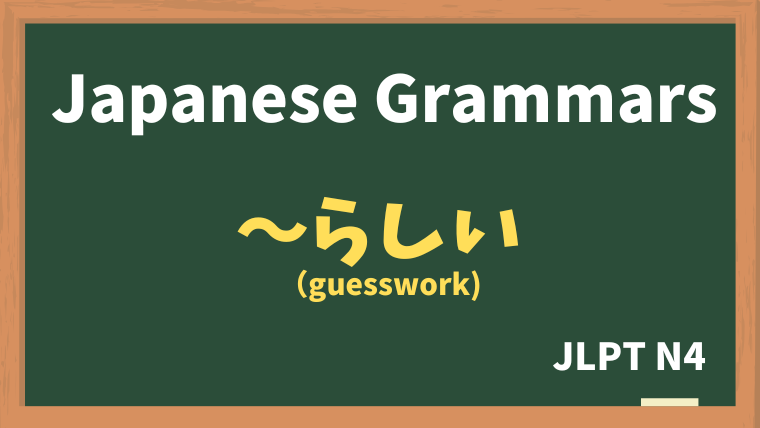
Explanation:〜らしい
fa-check-circleMeaning
Used to convey a guess or assumption based on indirect evidence, hearsay, or one's own impression. It suggests that the speaker does not know for sure but has some reason to believe something is likely true, often from what they have observed or heard from others. In English, it can translate to "it seems," "it appears," or "apparently.
fa-check-circleForm
Verb(plain form)+らしい
い-adjective(plain form)+らしい
な-adjective(plain form)+らしい ※ナAだ + らしい
N(plain form)+ らしい ※Nだ + らしい
fa-check-circlePoints
- Conveying Uncertain Information: This expression communicates a sense of speculation, typically when the speaker is not fully certain but has some basis for their guess.
- Based on Indirect Information: The guess is often based on secondhand information, general impressions, or visual cues rather than firsthand knowledge.
- Flexible in Tone: "〜らしい" can be used both formally and informally, depending on the context, and is common in everyday conversation when discussing hearsay or impressions.
fa-check-circleJLPT Level
N4
Sample sentenes
明日は 雨らしいです。
It seems like it will rain tomorrow.
最近 忙しいらしいね。
You seem busy lately.
あの レストランの ハンバーグは とっても おいしいらしいよ。
I heard the hamburgers at that restaurant are really good.
トムさんは 大学を 卒業らしい、国へ 帰るらしいよ。
Tom says he's going back to his country after he graduates from college.
新しい 先生は 英語と 中国語が ペラペラらしいよ。
I heard that the new teacher is fluent in English and Chinese.
週末、学校で パーティーが あるらしいけど、キムさんは 参加するの?
I heard that there is a party at the school this weekend, are you going to attend?
Vocabulary
| Japanese | English | |
| 卒業する | そつぎょうする | to graduate |
| 参加する | さんかする | to attend |






